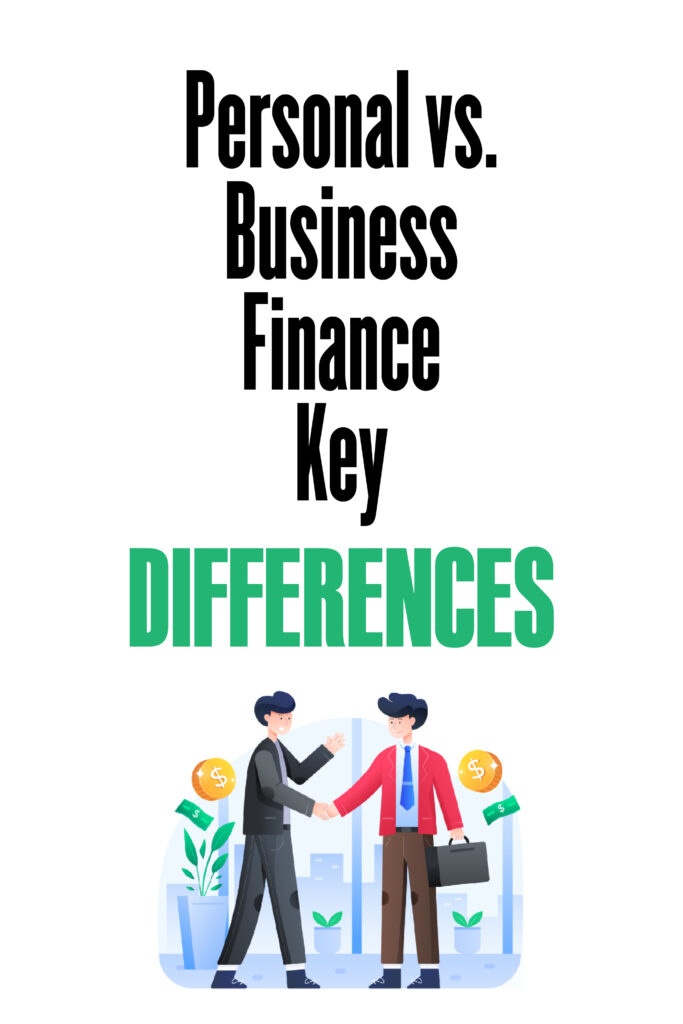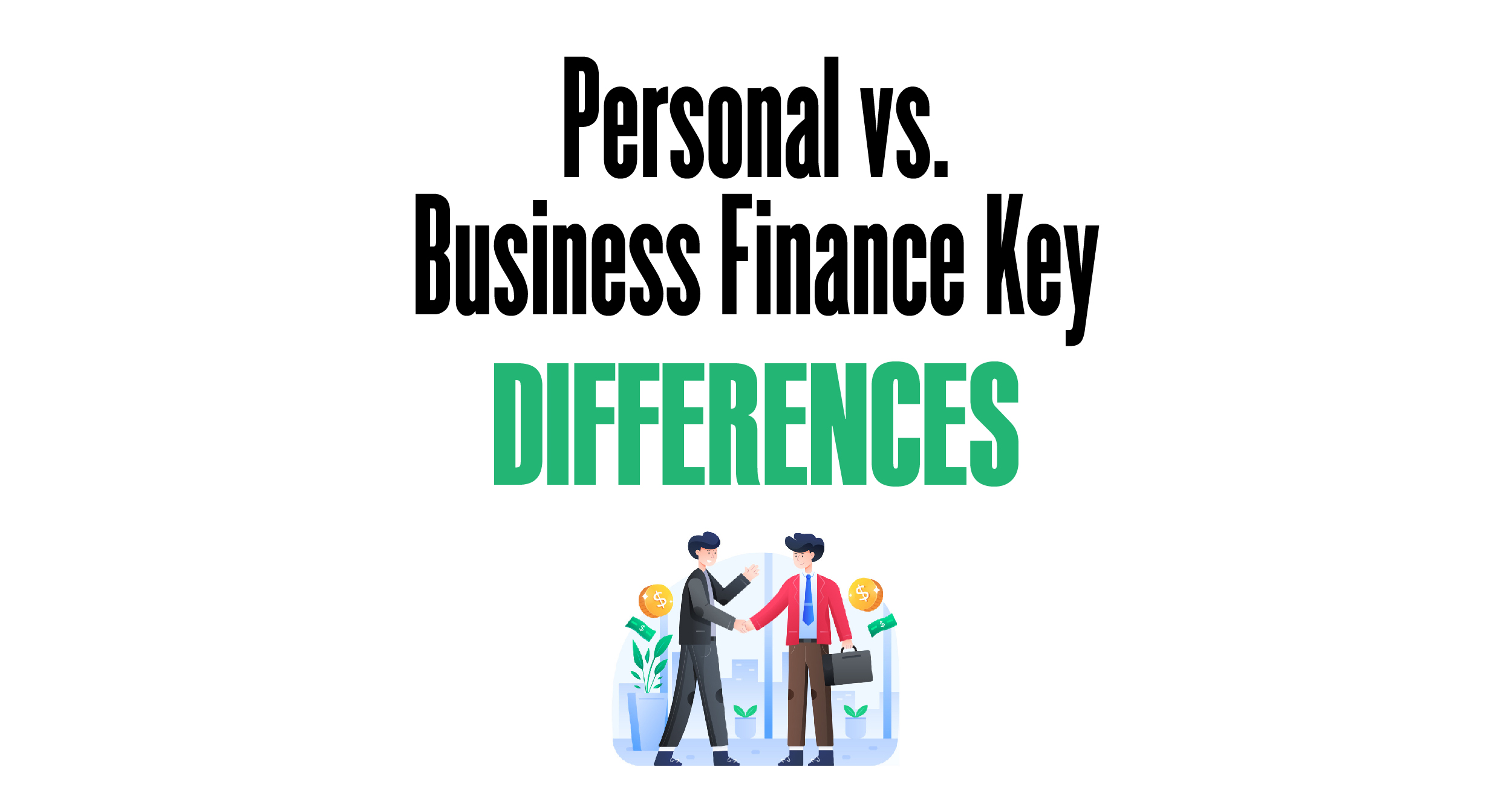Personal finance involves managing individual or household money, while business finance focuses on handling finances for a company. Both play crucial roles but have distinct objectives and strategies.
Personal finance deals with budgeting, saving, investing, and planning for personal financial goals like retirement or education. It’s about ensuring financial stability and growth for an individual or family. Business finance, on the other hand, revolves around managing a company’s financial activities to maximize profits and ensure long-term sustainability.
This includes investment decisions, risk management, and strategic planning. Understanding the differences between the two is essential for effective financial management, whether for personal growth or business success. By mastering both, one can achieve financial stability in all aspects of life.
Definitions
Understanding the definitions of personal finance and business finance is crucial. These terms help you manage money effectively. Let’s break them down.
What Is Personal Finance?
Personal finance is all about managing your own money. It includes:
- Income
- Expenses
- Savings
- Investments
- Debt management
It involves planning for future goals. These goals might be buying a house or saving for retirement. Personal finance also includes managing daily expenses. Budgeting is key here. A budget helps track where your money goes.
What Is Business Finance?
Business finance focuses on a company’s financial activities. It includes:
- Raising capital
- Managing assets
- Monitoring liabilities
- Investing in growth opportunities
- Financial planning and analysis
Business finance aims to maximize profit and value. It involves decisions on how to allocate resources. This ensures the business can grow and thrive. Financial statements are crucial in business finance. They provide insights into financial health.
| Aspect | Personal Finance | Business Finance |
|---|---|---|
| Focus | Individual money management | Company financial activities |
| Components | Income, expenses, savings | Capital, assets, liabilities |
| Goal | Future financial security | Maximize profit and value |
| Tools | Budgets, savings plans | Financial statements, analysis |

Credit: virtualggc.com
Goals
Understanding the goals of personal finance and business finance is crucial. Each type of finance has specific objectives that guide financial decisions. Let’s dive into the unique goals of each.
Personal Financial Goals
Personal financial goals focus on an individual’s financial well-being. These goals aim to ensure financial stability and growth over time. Common personal financial goals include:
- Saving for Emergencies: Building an emergency fund for unexpected expenses.
- Debt Reduction: Paying off credit cards, student loans, or mortgages.
- Retirement Planning: Investing in retirement accounts like 401(k) or IRAs.
- Education Savings: Setting aside funds for children’s education.
- Home Ownership: Saving for a down payment on a house.
These goals help individuals achieve financial security and peace of mind.
Business Financial Objectives
Business financial objectives focus on the health and growth of a company. These objectives ensure the business remains profitable and competitive. Key business financial objectives include:
- Revenue Growth: Increasing sales and revenue year over year.
- Cost Management: Reducing operational costs to maximize profits.
- Profit Maximization: Ensuring the business generates high profits.
- Cash Flow Management: Maintaining positive cash flow for operations.
- Investment in Innovation: Allocating funds for research and development.
These objectives guide businesses to thrive in their respective markets.
Budgeting
Budgeting is a crucial aspect of both personal and business finance. It helps in managing expenses, saving money, and planning for future goals. This section explores the differences between personal and business budgeting.
Personal Budgeting Tips
Personal budgeting involves managing your income and expenses. It’s important to track where your money goes.
- Create a Monthly Budget: List your income and expenses. Make sure your expenses don’t exceed your income.
- Track Your Spending: Use apps or spreadsheets to keep track of daily expenses. This helps identify unnecessary spending.
- Set Financial Goals: Decide what you want to achieve. This could be saving for a vacation or paying off debt.
- Emergency Fund: Always save some money for unexpected expenses. Aim for at least three months’ worth of living expenses.
- Review and Adjust: Regularly review your budget and make adjustments. Life changes, so should your budget.
Business Budgeting Strategies
Business budgeting is more complex and requires careful planning. It ensures the company remains profitable.
| Strategy | Description |
|---|---|
| Forecast Revenue | Estimate how much money the business will make. Use past data and market research. |
| Control Costs | Identify fixed and variable costs. Find ways to reduce variable costs. |
| Allocate Resources | Decide how to spend money on different areas. Prioritize essential operations and growth opportunities. |
| Monitor Cash Flow | Ensure you have enough cash to cover daily operations. Use cash flow statements to track this. |
| Adjust as Needed | Regularly review the budget. Make changes based on performance and market conditions. |
Income Sources
Understanding the difference between personal finance and business finance is essential. One significant area to consider is income sources. While both have unique ways of generating income, they serve different purposes and follow different strategies.
Personal Income Streams
Personal income streams are the methods by which individuals earn money. These can include:
- Salaries and Wages: Regular income from employment.
- Freelance Work: Payments for services rendered on a contract basis.
- Investments: Earnings from stocks, bonds, and other financial instruments.
- Rental Income: Money earned from renting out property.
- Side Hustles: Additional income from part-time jobs or gigs.
Business Revenue Streams
Business revenue streams refer to the ways a business earns money. These can include:
| Revenue Stream | Description |
|---|---|
| Sales | Income from selling products or services. |
| Subscriptions | Recurring income from subscription-based services. |
| Advertising | Revenue from ads on websites or apps. |
| Licensing | Fees for using intellectual property. |
| Investments | Returns from business investments. |
Both personal and business finances require careful planning. Understanding the different income sources can help in making informed decisions.
Expense Management
Expense management is crucial for both personal and business finance. It involves tracking, controlling, and planning how money is spent. Understanding how to manage expenses can lead to better financial health.
Managing Personal Expenses
Managing personal expenses is all about keeping track of your daily spending. You should list all your expenses, from groceries to entertainment. Creating a budget helps you see where your money goes. This helps in saving money and avoiding debt.
Here are some tips for managing personal expenses:
- Create a monthly budget
- Track daily spending
- Use apps for financial tracking
- Avoid unnecessary purchases
- Save a portion of your income
| Expense Category | Monthly Budget |
|---|---|
| Groceries | $300 |
| Entertainment | $100 |
| Utilities | $150 |
| Rent | $800 |
Controlling Business Costs
Controlling business costs ensures the business stays profitable. Businesses need to keep a close eye on their expenses. This includes salaries, rent, supplies, and marketing.
Here are some strategies for controlling business costs:
- Regularly review financial statements
- Negotiate with suppliers for better rates
- Automate processes to save time and money
- Cut down on unnecessary expenses
- Invest in cost-effective technology
| Expense Type | Annual Budget |
|---|---|
| Salaries | $200,000 |
| Rent | $24,000 |
| Supplies | $10,000 |
| Marketing | $15,000 |

Credit: blog.mycsbin.com
Investment Strategies
Understanding the difference between personal finance and business finance is crucial. Each has unique investment strategies tailored to specific goals and risk tolerances. Let’s explore the various options available for personal and business investments.
Personal Investment Options
Personal investment options are designed to grow individual wealth. They often focus on long-term gains and retirement planning.
- Stocks and Bonds: Stocks offer ownership in companies. Bonds are loans to governments or corporations.
- Mutual Funds: These are pooled funds managed by professionals.
- Real Estate: Investing in property for rental income or resale value.
- Retirement Accounts: Accounts like IRAs and 401(k)s help save for retirement.
Business Investment Choices
Business investments focus on growth, expansion, and operational efficiency. These options aim to increase the company’s value and market presence.
- Equity Investments: Investing in company shares to gain partial ownership.
- Reinvestment of Profits: Using profits to expand or improve the business.
- Research and Development: Investing in innovation to stay competitive.
- Equipment and Technology: Buying new equipment or technology to boost productivity.
Risk Management
Risk management is crucial in both personal finance and business finance. Understanding how to manage risks can help in safeguarding assets and ensuring financial stability. Let’s dive into the differences between personal and business risk management.
Personal Risk Mitigation
Personal risk mitigation involves strategies to protect individual financial health. These strategies ensure that unexpected events don’t derail personal financial goals.
- Emergency Fund: Maintain a fund for unexpected expenses.
- Insurance: Health, life, and property insurance are essential.
- Diversification: Spread investments to lower risk.
- Debt Management: Avoid high-interest debts.
- Regular Savings: Save a portion of income consistently.
Business Risk Management
Business risk management focuses on protecting the company’s assets and ensuring operational continuity. The methods used are broader and more complex than personal risk mitigation.
| Risk Type | Management Strategy |
|---|---|
| Operational Risks | Implement strong internal controls and procedures. |
| Financial Risks | Diversify revenue streams and manage cash flow. |
| Compliance Risks | Stay updated with laws and regulations. |
| Strategic Risks | Conduct regular SWOT analyses. |
| Reputation Risks | Maintain strong public relations and customer service. |
Businesses also use risk transfer methods like insurance and hedging. Regular audits and risk assessments are vital for identifying and mitigating risks.

Financial Tools
Understanding the difference between personal finance and business finance is crucial. Both require unique tools to manage effectively. In this section, we’ll explore the specific tools used for each.
Tools For Personal Finance
Managing personal finance involves using various tools. These tools help track and control your money.
- Budgeting Apps: Apps like Mint and YNAB help you track expenses.
- Spreadsheets: Excel or Google Sheets track income, expenses, and savings.
- Financial Planning Software: Tools like Quicken help with long-term financial planning.
- Banking Apps: Most banks offer apps to manage accounts and transactions.
- Investment Platforms: Apps like Robinhood and Acorns assist with investing.
Tools For Business Finance
Businesses need different tools to handle their financial needs. These tools ensure smooth financial operations.
| Tool Type | Examples | Uses |
|---|---|---|
| Accounting Software | QuickBooks, Xero | Track income, expenses, and payroll |
| Invoicing Tools | FreshBooks, Zoho Invoice | Create and manage invoices |
| Expense Management | Expensify, Concur | Track and approve expenses |
| Financial Planning Software | Adaptive Insights, PlanGuru | Plan budgets and financial forecasts |
Using the right tools can make managing your finances easier. Choose tools that fit your specific needs for personal or business finance.

Credit: corporatefinance.ng
Frequently Asked Questions
What Is The Difference Between Business Finance And Personal Finance?
Business finance involves managing money for a company, including investments, budgets, and expenses. Personal finance focuses on individual financial activities like saving, budgeting, and investing.
What Is The Difference Between Personal And Business Financial Planning?
Personal financial planning focuses on managing individual finances, including budgeting, saving, and investing. Business financial planning involves strategizing for a company’s financial health, including cash flow management, profit forecasting, and investment decisions.
What Is The Main Difference Between Finance And Business?
Finance focuses on managing money, investments, and financial planning. Business involves creating, marketing, and selling products or services for profit.
What Is The Difference Between Business Money And Personal Money?
Business money is used for company expenses and investments. Personal money covers individual and household needs. Keep them separate for clear accounting.
Conclusion
Understanding the differences between personal and business finance is crucial. Personal finance focuses on individual financial goals. Business finance deals with managing company assets and liabilities. Both require careful planning and strategic management. Mastering these concepts can lead to financial success in both personal life and business ventures.

